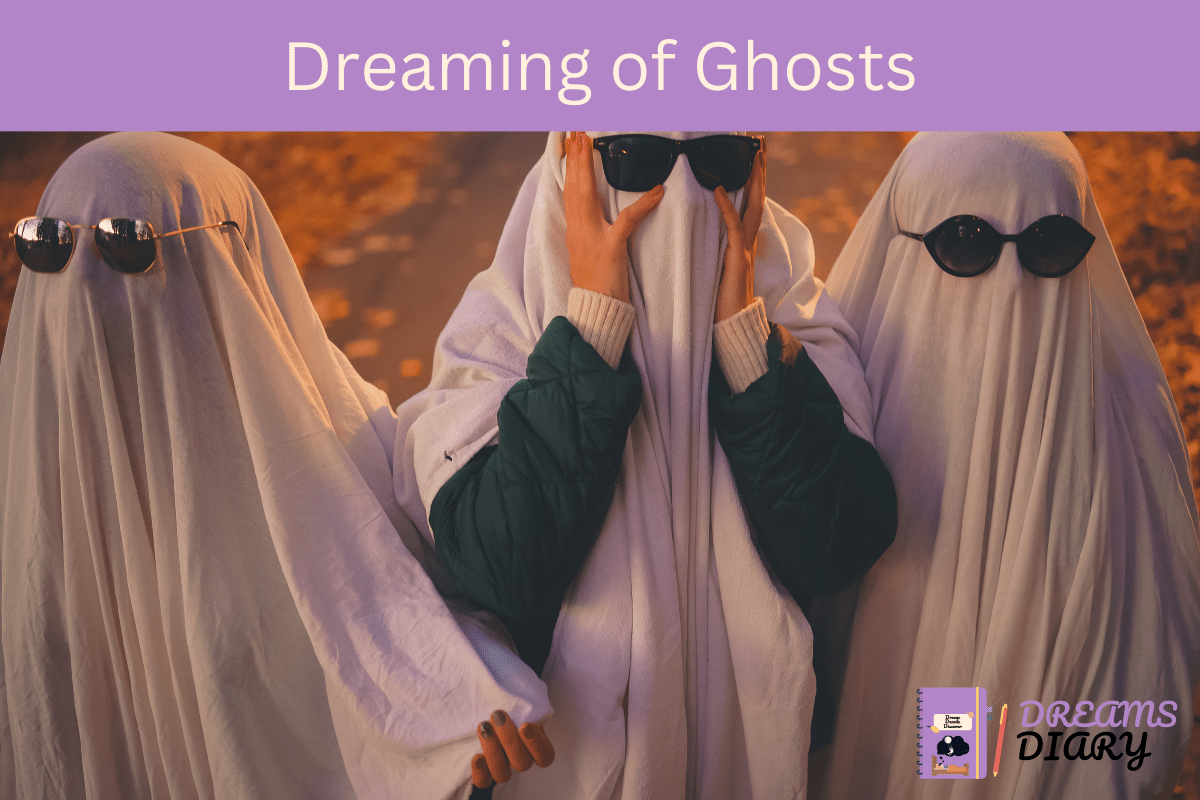Introduction
Dreaming of ghosts is a complex experience, often rooted in the deepest parts of our subconscious. These dreams can serve as a window, shedding light on our hidden feelings, thoughts, and past moments that have left a significant impact on us. By exploring the intricacies of a dream involving ghosts, we can gain a profound understanding of our innermost self, uncovering revelations that might have been obscured from our conscious mind.
What Does the Dream About Crying Signify?
Dreams about crying often represent a release of emotions or a need for emotional release.
Symbolism and Insight
Crying in dreams can be associated with a variety of symbols and emotions. On one hand, it could represent sadness, grief, or mourning, indicating a loss or a period of sorrow in one’s life. On the other hand, crying could also symbolize a release of pent-up emotions, suggesting the dreamer is undergoing a period of healing or emotional cleansing. This dream scenario can also be a reflection of feelings of helplessness or vulnerability, pointing towards the dreamer’s need for support or comfort. Understanding these symbols requires a deep reflection on the dreamer’s current emotional state, psychological well-being, and life situations.
4 Common Dream Scenarios
| Dream Scenario | Interpretation |
|---|---|
| Dreaming of a ghost crying alone | This scenario may reflect feelings of solitude or the need for self-reflection, urging the dreamer to pay attention to their emotional needs. |
| Being surrounded by crying ghosts | This dream might indicate feelings of being overwhelmed or a desire for personal boundaries, highlighting the need to take care of one’s mental health. |
| A ghost crying over a missed opportunity | This dream could unveil feelings of regret, lost opportunities, or unfulfilled desires, urging the dreamer to reflect on their past decisions and future aspirations. |
| Consoling a crying ghost | This scenario may signify the dreamer’s empathy and nurturing side, while also pointing towards their own need for comfort and understanding. |
Cultural Contexts
Culture 1: Chinese
In Chinese culture, dreams of ghosts are often interpreted as messages from the beyond, usually serving as warnings or guidance. Ghosts are believed to be ancestors or deceased individuals trying to communicate with the living. Dreaming of ghosts could mean that the dreamer is neglecting their duties towards their ancestors, or it could be a reminder to pay attention to their moral conduct and values. In a spiritual context, it might also indicate unresolved issues with the deceased, urging the dreamer to find closure or seek forgiveness.
Culture 2: Native American
Within Native American tribes, dreams hold a sacred and vital role in guiding individuals and communities. Dreaming of ghosts or spirits could be perceived as a connection to the ancestral world, providing wisdom, guidance, or warnings. These dreams might also symbolize a spiritual journey or transformation, urging the dreamer to reflect on their life path and personal growth.
Culture 3: Indian
In Indian culture, particularly within Hinduism, dreams of ghosts might be interpreted as an indication of unresolved issues, highlighting karmic debts that need to be settled. Ghosts in dreams could also symbolize inner fears, guilt, or repressed emotions, urging the dreamer to confront and resolve these internal conflicts for spiritual liberation.
Culture 4: Western (Psychoanalytic Perspective)
In Western cultures, particularly from a psychoanalytic perspective, dreaming of ghosts might be interpreted as manifestations of repressed thoughts, unresolved issues from the past, or aspects of the self that have been neglected or forgotten. These dreams could serve as a call for the dreamer to address these hidden aspects of their psyche, facilitating personal growth and self-awareness.
Personal Factors to Consider for dream of ghosts
When interpreting a dream of ghosts, it’s crucial to consider the dreamer’s personal experiences, beliefs, and current life situations. A dream that might generally symbolize unresolved issues could have a completely different meaning for someone who has recently lost a loved one or is going through a period of grief. Expert advice would suggest paying attention to the emotions felt during the dream, the context in which the ghosts appear, and any other significant symbols present. Differentiating between general interpretations and personal factors requires introspection and a willingness to explore one’s inner emotional state.
Psychological Perspectives
Sigmund Freud
Freud might interpret a dream of ghosts as a manifestation of repressed desires or unresolved issues from the dreamer’s past, particularly related to relationships or traumatic experiences. He could suggest that these ghostly figures represent the parts of ourselves that we have buried deep within our subconscious, and their appearance in our dreams is an indication that these aspects are seeking attention and resolution.
Carl Jung
Jung might view a dream of ghosts as an encounter with the shadow self, a part of the unconscious mind consisting of repressed weaknesses, desires, and instincts. He might suggest that the dream is an opportunity for the individual to integrate these aspects into their conscious awareness, facilitating a process of individuation and personal growth.
“Dreams are the guiding words of the soul. Why should I henceforth not love my dreams and not make their riddles a part of my life?” – Carl Jung
Conclusion
Deciphering a dream of ghosts is a multifaceted endeavor, requiring a balance between understanding universal symbols and delving into the personal and intimate realms of the dreamer’s mind. It is a journey that invites us to explore the depths of our subconscious, uncovering hidden emotions, desires, and unresolved issues. As we navigate through this intricate landscape, we are encouraged to embark on a path of self-reflection and introspection, decoding the signals and messages that our inner mind is trying to convey.
FAQs (Frequently Asked Questions)
Not necessarily. Dreams of ghosts can have various meanings depending on the cultural context, personal beliefs, and current life situations of the dreamer. It’s crucial to consider these factors when interpreting the dream.
In some cultures, it is believed that ghosts in dreams are ancestors or loved ones trying to communicate with the living. However, this interpretation can vary widely depending on one’s personal beliefs and cultural background.
A symbolic dream usually leaves the dreamer with insights, questions, or a sense of understanding, whereas a nightmare often results in feelings of fear, anxiety, and unrest. Paying attention to the emotions experienced during the dream and upon waking can help differentiate the two.

